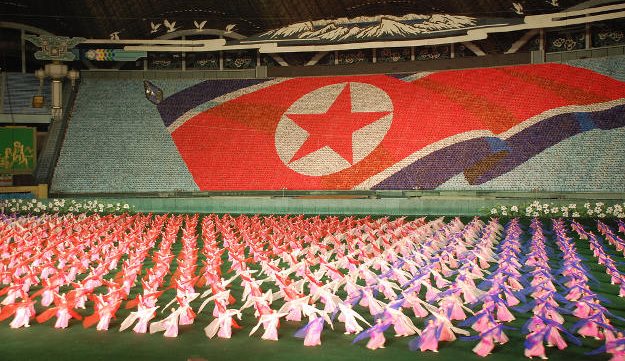Search Results for: language proficiency
NK Refugee Passes 1st Level Language Exam
Just three years after arriving in Japan, I have passed Level 1 of the Japanese Language Proficiency Test, so I decided to write about my experience in the hope that it might encourage others.
When I arrived at Narita airport, I finally met the person who had worked so hard to get me to Japan. The first words he said to me were, “Why did you want to come to Japan?”. At the time, I could only manage simple greetings in Japanese, and although I could vaguely understand what he was saying, I could not reply in his language.
Another success story
We at LFNKR are extremely proud of Kim S. who graduated from a night school in March this year. He made it to Japan in 2017 after escaping from North Korea and surviving a journey filled with hazards and hardships.
We told you about him back in Sept. 2017. If you’d like to read the back-story, refer to: https://www.northkoreanrefugees.com/2017/09/
When Kim S. arrived in Japan, he did not speak, read or write Japanese at all, but now …
LFNKR Annual Meeting, Oct. 12, 2015
Tokyo the Site of 18th Annual Meeting
A report on LFNKR activities during the past year was presented at the Annual Meeting. Perhaps the single most important issue is how the past several years have brought significant changes to the conditions facing North Korean refugees. Part of the change is due to the drastically tightened crackdown along the China-North Korea border. The crackdown is particularly stringent on the North Korea side, making it increasingly difficult to escape from North Korea.
In fact, over the past two years, rescue operations for assisting North Korean defectors in reaching safe third countries have fallen to almost nothing. This is new to our organization. The focus of our activities, therefore, has already begun shifting away from rescue operations, although we still stand ready to assist any NK refugees wherever possible. Now the emphasis is increasingly on helping former defectors resettle in Japan and on generating publicity to help boost public awareness of the human rights abuses in North Korea. This includes the publication of books related to the human rights outrages in that country.
Among those attending the Annual Meeting were four former North Korean defectors, Mr. I.K, Miss K.H, Miss J.L, and Baby Sumi’s mother, who each presented updates on their life in Japan now.
Mr. I.K. and his family were the first North Korean family that LFNKR helped to escape and resettle in Japan (1999). He and his wife are now running a successful business, a thriving guest house, in Osaka.
Refer to previous article: Settling and Surviving in Japan.
Miss K.H. said that she is studying very hard in preparation for the national nursing qualification exam coming in March.
Refer to previous article: Set a Goal and Tackle it for Best Results:
Miss J.L. is attending a dental hygienist college in Tokyo and also works as a part-time assistant at a dental office. She has had overcome hardships, including being arrested in Laos as she made her way to Japan. However, once in Japan, in barely two years she passed the Japanese Language Proficiency Exam, Level One. She has surprised us all, speaking almost perfect and fluent Japanese.
And baby Sumi’s mother showed us new pictures of Sumi, now 4 years old, dancing happily at her preschool. In addition to the new business, Sumi’s mother told us, she has also recently started a group to provide mutual aid among North Korean women who have resettled in Japan.
Please see Baby Sumi Celebrates First Birthday.
Or read Former NK Refugee Starts New Business
Listening to the speeches of these courageous people, we were deeply impressed by their great efforts. We are very proud of them and of all of those we have rescued.
One Volunteer’s Story
Ever wonder who does the behind-the-scenes work in an NGO like ours?
A while back Hiroshi Kato, who heads this organization, posted a call for volunteers – someone to help LFNKR with translation work. Since this NGO is made up almost exclusively of volunteers, and there’s always more to do than time available, we are always delighted to hear from those wanting to help.
One young lady in the US, a “Mrs M,” contacted us offering her assistance. Only thing was, she wasn’t sure her skills were good enough. We sent her a couple of short articles to try, and as it turns out, her skills were excellent. She’s been translating for us ever since.
And then the other day we wondered, would readers be interested in hearing how one volunteer started?
We thought that you, our readers, might indeed be interested, so here it is – Mrs M’s story:
Doing Well in Nursing School

Update from former NK refugee
Miss K. H., one of the North Korean defectors we helped rescue four years ago, just sent us an update on her progress in nursing school. As you may recall from ourearlier article last year, she is a former North Korean defector who has resettled in Japan.
What We Look for in an Intern
If You’ve Ever Thought of Internship…
Throughout the year, Life Funds for North Korean Refugees receives inquiries from students interested in doing an internship with us. We’re excited by all the enthusiasm for North Korean human rights issues that this represents, and we wish that we could take on some of these impressive candidates.
Why she had to flee from North Korea

As part of its important activities, LFNKR has been supporting former North Korean defectors who come to Japan and resettle. Ms. Kim SH is one of the defectors whom LFNKR has helped to build up her new career in Japan. In her busy daily life, employed as a medical worker, she frequently provides LFNKR with utmost help in its activities, such as events related to North Korean human rights issue, often as a speaker describing what life is like in North Korea.
LFNKR Action Plan for FY 2006-2007
Overview
Last year, a single charter flight from Vietnam carried 460 North Koreans into South Korea. This case had a strong impact on the international community and spotlighted North Korea’s human rights problems. It remains to be seen, however, what lessons it has taught the South Korean government, which fears a similar incident occurring in Thailand.






